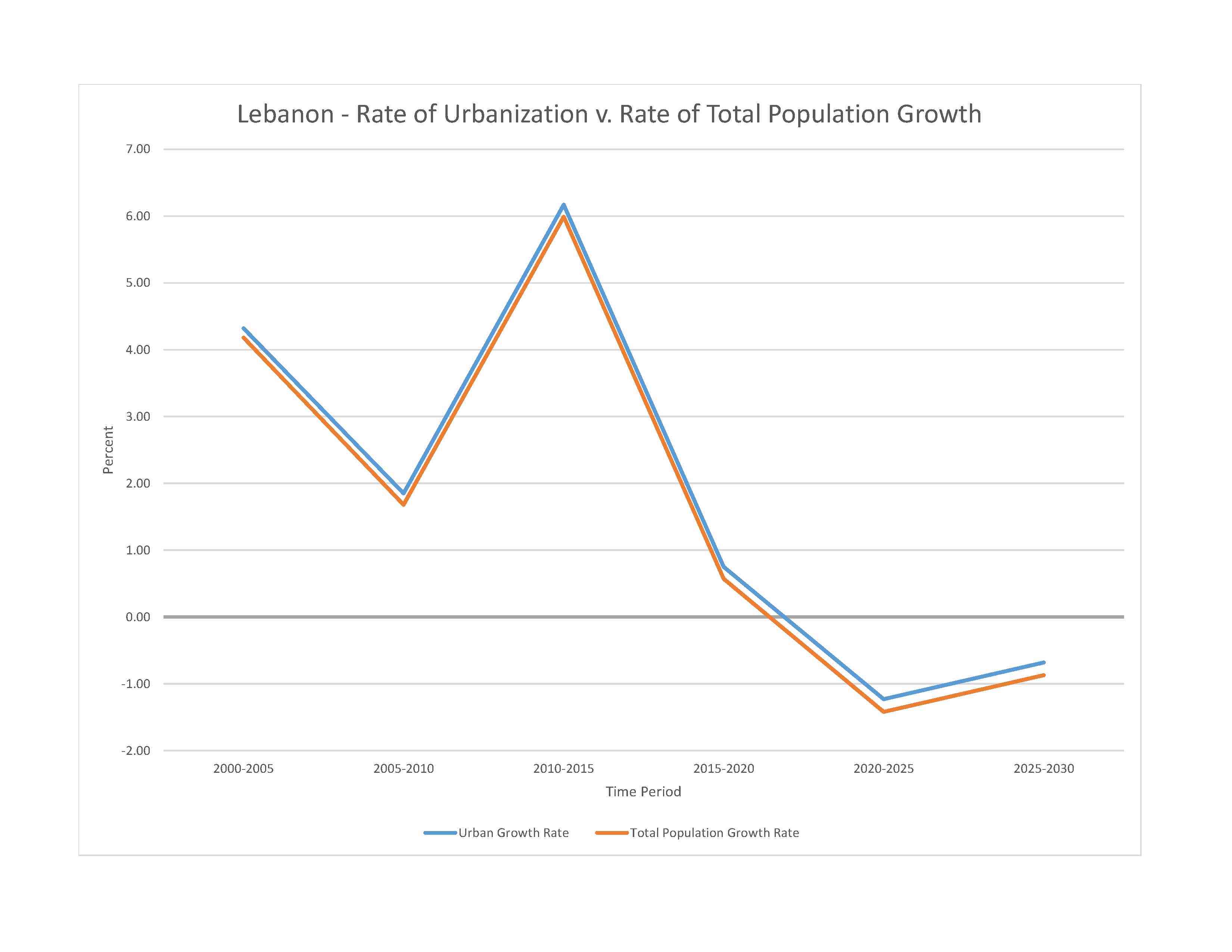
deforestation; soil deterioration, erosion; desertification; species loss; air pollution in Beirut from vehicular traffic and the burning of industrial wastes; pollution of coastal waters from raw sewage and oil spills; waste-water management
party to: Biodiversity, Climate Change, Climate Change-Kyoto Protocol, Climate Change-Paris Agreement, Comprehensive Nuclear Test Ban, Desertification, Endangered Species, Hazardous Wastes, Law of the Sea, Nuclear Test Ban, Ozone Layer Protection, Ship Pollution, Wetlands
signed, but not ratified: Environmental Modification, Marine Life Conservation
Mediterranean; mild to cool, wet winters with hot, dry summers; the Lebanon Mountains experience heavy winter snows
agricultural land: 63.3% (2018 est.)
arable land: 11.9% (2018 est.)
permanent crops: 12.3% (2018 est.)
permanent pasture: 39.1% (2018 est.)
forest: 13.4% (2018 est.)
other: 23.3% (2018 est.)
urban population: 89.4% of total population (2023)
rate of urbanization: -1.23% annual rate of change (2020-25 est.)

widespread lack of access:due to the ongoing financial and economic crisis - in September 2021, the United Nations estimated that, taking into account multiple factors other than income, such as access to health, education and public utilities, 82% of the population lives in multidimensional poverty in 2021, up from 42% in 2019 (2022)
0% of GDP (2018 est.)
0% of GDP (2018 est.)
particulate matter emissions: 24.23 micrograms per cubic meter (2019 est.)
carbon dioxide emissions: 24.8 megatons (2016 est.)
methane emissions: 3.37 megatons (2020 est.)
municipal solid waste generated annually: 2.04 million tons (2014 est.)
municipal solid waste recycled annually: 163,200 tons (2014 est.)
percent of municipal solid waste recycled: 8% (2014 est.)
municipal: 240 million cubic meters (2020 est.)
industrial: 900 million cubic meters (2020 est.)
agricultural: 700 million cubic meters (2020 est.)
4.5 billion cubic meters (2020 est.)
NOTE: The information regarding Lebanon on this page is re-published from the 2024 World Fact Book of the United States Central Intelligence Agency and other sources. No claims are made regarding the accuracy of Lebanon 2024 information contained here. All suggestions for corrections of any errors about Lebanon 2024 should be addressed to the CIA or the source cited on each page.
This page was last modified 04 May 24, Copyright © 2024 ITA all rights reserved.